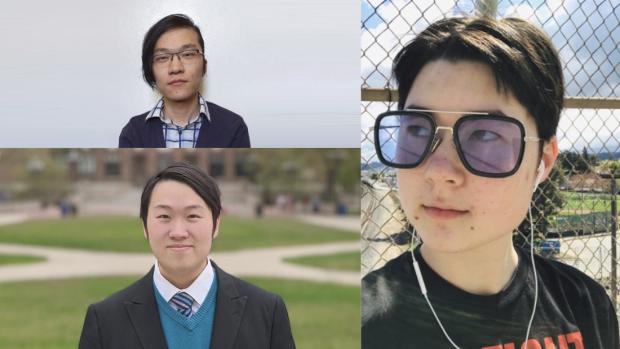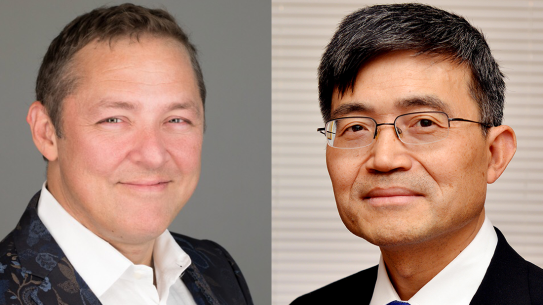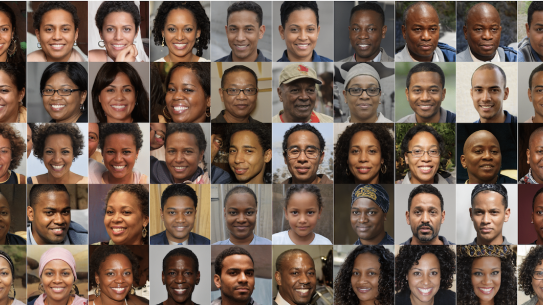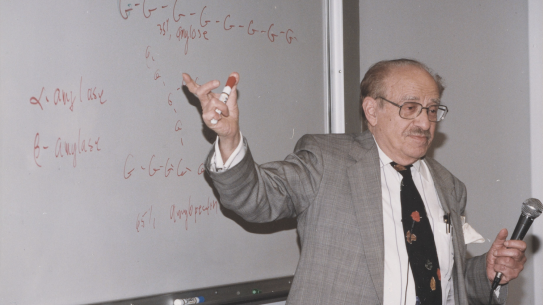Helping younger students SOAR
Tandon students serve as instructors in middle and high school science classrooms

Clockwise from top left: Leo Lui, Nat Ku and Jonathan Sun participate in NYU Tandon’s Science Outreach and Research (SOAR) initiative
“If you asked a group of scientists what sparked their interest in STEM, the vast majority will say it was an amazing class or teacher,” Ph.D. candidate Jonathan Sun says. “If a teacher can communicate a concept clearly and make a topic accessible, students will absorb the material, no matter what their learning style. That’s why when programs like SOAR work, science thrives.”
Sun, who is conducting research on supercharged coiled-coil proteins in Professor Jin Kim Montclare’s Lab for Protein Engineering and Molecular Design, was referring to NYU Tandon’s Science Outreach and Research (SOAR) initiative, which was spearheaded by Montclare and aimed at sending select Tandon students into middle and high school classrooms and labs to serve as instructors and mentors.
Sun believes every scientist has a responsibility to engage in outreach activities and is delighted to be advising the newest pair of SOAR fellows, who will be working with students from the Urban Assembly Institute of Math and Science for Young Women and 75 Morton, a Manhattan-based middle school.
“At 75 Morton, we’re working with basic biology and chemistry, specifically, a simulation that shows how a virus hijacks a cell and the cell’s immune response; a Periodic Table simulation where the students identify elements based on their chemical and physical properties; and a solutions concentration simulation that models dilution,” explains Nat Ku, a member of the Class of 2024 who is majoring in Chemical and Biomolecular Engineering and who was recently chosen as a SOAR fellow. “At the Urban Assembly Institute, we’re working with their AP Environmental Engineering class, implementing simulations about renewable resources, and we’re also gauging how the transition to online learning has affected the student’s learning process, their moods, and their attitudes.”
Bringing those simulations to the remote learning environment requires computer science, and that’s the purview of the other new SOAR fellow, Leo Liu. “A lot of technology goes into getting ready to present these lessons in the classroom, so it helps to have knowledge of software development, web hosting, user experience and interface design, and other topics like that,” he says. “I knew what I was getting into because I have been friends for several years with Andrew Qu, a fellow computer science major who became a SOAR fellow last year. As he described the work he was getting to do, I became really intrigued, so I was very happy to be chosen as a fellow this year.”
Undergraduate fellows earn a National Science Foundation-funded stipend, guided-study credits, hands-on teaching experience, and the chance to conduct publishable research, since part of their work involves assessing the impact of their efforts on STEM learning and student performance. Even more important, however, as Sun, Ku, and Liu agree, is the chance to get younger students interested in STEM.
“SOAR represents an opportunity to pay it forward,” Ku explains. “I was able to learn about STEM during my middle and high school experience, and that’s how I got into NYU and how I ended up in this fellowship. I want to help give other kids the same positive learning experience that I was fortunate enough to get, and hopefully instill in them the same confidence in their knowledge that my teachers fostered in me.”





